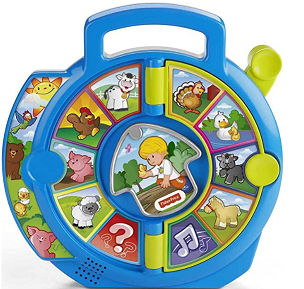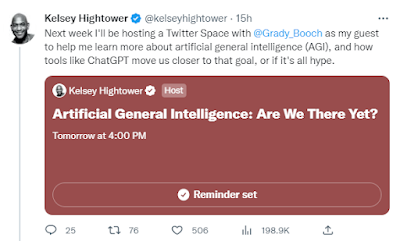Book Notes: Be the Hero by Noah Blumenthal
Change Your Stories - Change Your Life
Important take home messages:
This book is about helping people choose to be an "everyday hero"
No one is free from challenges both at work and life. we all have tough moments, times when we become angry and frustrated with the world.
The key message in this book is not that 'stories' are a panacea. We cannot solve all our problems by living in a 'fantasy' world. However, the tools discussed in the book, can help us tell better stories, and by telling better stories, can lead us back onto a path of happiness and success.
The book follows the fictional character 'Jeff', described as a 'good guy with talent and high hopes'. Although the story is fictional, you may find it easy to relate. On Jeff's journey he meets an old friend 'Martin' and who teaches him about the three types of stories we tell ourselves, and how to 'flip the script' by asking the simple question - If this were a 'story' - What would the hero do? The answer helps us turn the event into something that we are a part of creating, not something that 'happened to us', and gives particle advice on how to make things work 'for us' not 'against us'.
The Three Types of Stories
People Stories
Jeff is feeling pretty angry at his boss, you may have felt this way before if you can fill in the blank here. My boss is such a(n) _____! Martin tells Jeff, of course he feels angry with a "story" like that. Which makes Jeff upset, the gall of thinking that it is just a 'story', that he doesn't have the "right" to be upset, that he should simply 'turn it off and not feel upset'
Martin suggests that all of Jeff's anger and stress is not actually a response to his bosses (Yvette's) actions. To which Jeff (at first) thinks Martin is crazy! But his anger is actually a response to the story Jeff has told himself about the situation. It is the stories are the way a person interacts with the world around them
When we are victims in our stories we tell ourselves things that bring us down, make us angry and steal our ability to face our challenges. We are so upset, the stories can 'freeze' us, keep us from moving forward.
When we are the heroes in our stories, we shift our focus to see other peoples pain, and challenges. Think of any superhero story. They help others in trouble, focus on the pain of the other person, not on their own pain.
When someone is acting "like a jerk", change the narrative, what could be causing him to act that way? Why pain / stress could he be under? . Take a few moments to reflect on the story from the other person's perspective and instead of being the victim, ask What would the hero do?
People stories do not always work. For example, if you own a young baby, and are up in the middle of the night, sleepless trying to get the baby to go to sleep, telling yourself the story of the 'baby's' pain might not be something easy to 'hold on to', and it is easy to slip back into the old story habit.
Situation Stories
Take a minute, and imagine these two situations - a) You are observing a group of people walking through the park on a Sunday afternoon. b) You are watching people move through the busy streets of New York on a Monday morning. For each of these, how would you see people ? - Would them seem relaxed, nervous, anxious "rushing" or calm & serene. I am betting you, like most people would observe those in the park on a Sunday much more calm and relaxed that the group rushing to their next meeting at work.
In addition to the stories we tell ourselves about people, we also tell ourselves stories about our circumstances. In the prior example the crying baby is not so much about a people story 'the pain of the baby' but a situation story. Being up all night trying to get the baby to sleep. For me personally, a good situation story occurs everytime I take my dog Dexter out to pee. I am not angry at all with Dexter, but the situation of being 'in charge' of it "all the time", is what causes me anger, and I am unlikely to focus on his pain (of needing to pee)
In situation stories, when you see something that someone else has (time to relax? or the ability to be very productive?) you feel envious. This is telling the story of the 'victim'... If only I could relax too! - What does the hero see?
Now it's important to understand that situations are real..they are not imaginary but how you choose the situation mattes a great deal!
Jeff learns two ways to look at situation stories
a) Instead of looking at "what you don't have", focus instead (gratitude) on what you do. It is important however in this mode, to focus on the specific. It's not enough to just say 'well there are people starving in this world that don't have enough to eat". Focus on something that is personal to you, someone you know or care about that maybe experiencing a particular difficulty that you do not. This helps bring perspective. The victim always compares him/herself to the person who has 'more'. The hero sees the people who have less.
b) Instead of focusing on "what doesn't work", shift to "what does", or 'what is happening well'. In the books example if Martin's son is sick in the hospital close to death, all of his time/focus is on that event, even though perhaps at the same time, his niece is being born just down the hall. By telling the victim story it robs us of the ability to experience joy in joyful situations. This is not to say that you should ignore the bad situation, but it does mean not to make yourself a victim because of it, and to take the time necessary to find the counter-balance within life so not to be 'swallowed' up by the situation.
Martin borrows a little "Dr. Phil" later when Jeff learns "what a minute, are you trying to tell me that because others have it worse off that I don't have the "right" to be angry or sad? To which Martin responds "Sure, you have the right to feel whatever you want! -- but the question is, How is your anger/sadness working for you?
Self Stories
The first two types of stories are great, except for one thing. using only these 2 types of stories it's easy to get the opinion that the 'big secret' of the book is just to "accept" things as they are, and there isn't much you can do about it. If your boss criticizes you see his/her pain. If your kids keeps you awake all night, appreciate what you have.
These stories, on their own "solve" nothing, but can help you look at the situation from a new perspective. The third story are stories you tell about yourself! What you 'can' and 'cannot do', what you 'should and should not do'. They are the limiting (or unlimiting) thoughts that prevent you to move forward.
The victim tells limiting stories to him/herself, that cause them to 'wallow'. In which they are unable to change the themselves or the world around them. I will never get out of this situation, I am 'doomed'. Things will never get better, I can't possible do anything about it. If you have not learned/practiced asking 'What would the hero see?' for the first two types of stories, you are basically 'stuck' for the third story - What does the hero see?.
The hero doesn't just accept the situation. She/He takes action
Sometimes this action takes the form of 'confronting' the problem head on, understanding the pain of others, and working through the situation, but other times the heroic thing to do is walk away. It is not always about 'saving the day', sometimes the story is one of personal growth, and it doesn't mean you have to 'get along' with all of the other characters. Walking away doesn't have to be drastic (like quitting your job) but it can be, it can also be just walking away from the particular situation at the time, and moving on to something else.
The first two stories give you the positive energy to act like a hero, the third story cultivates action.
Heroes are heroes because they stand up in the face of a challenge, this doesn't mean not being afraid and overwhelmed at times. It's how you act despite the fear that makes you a hero










Comments
Post a Comment